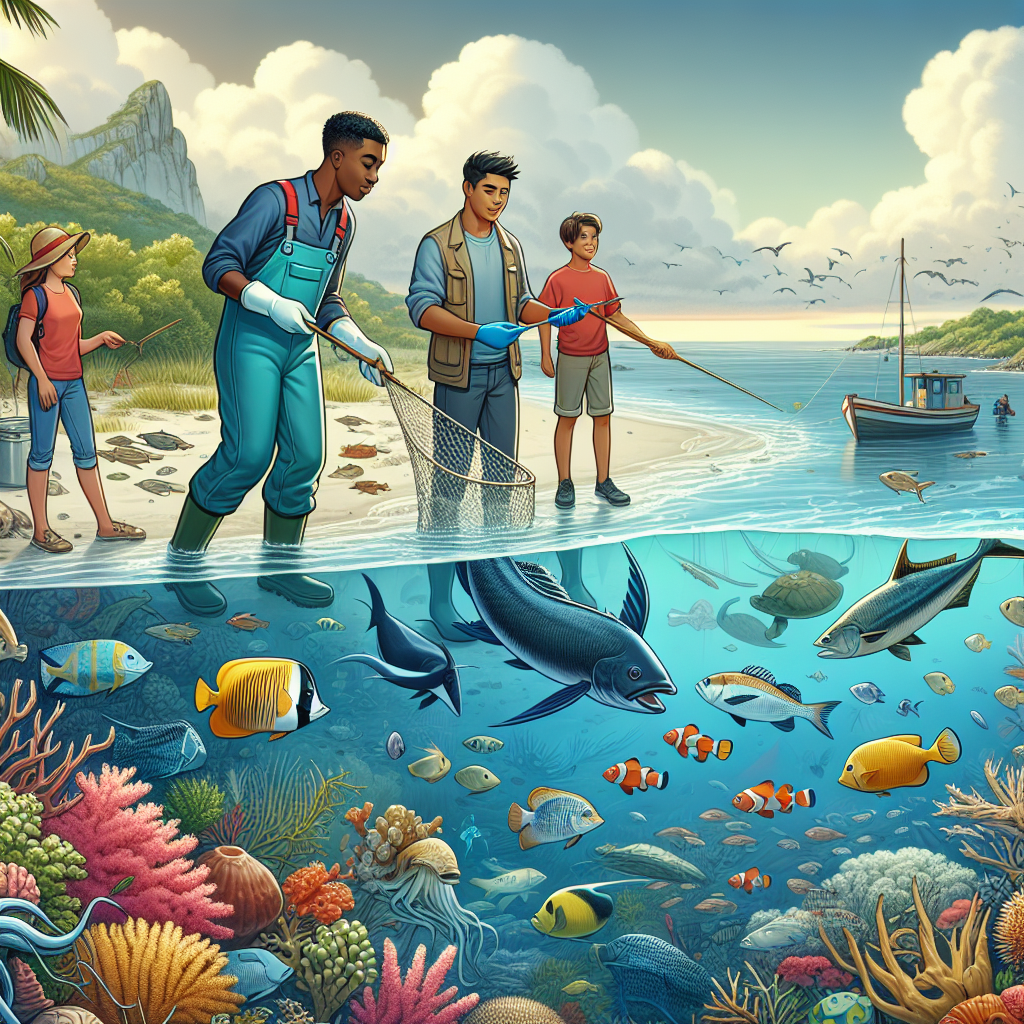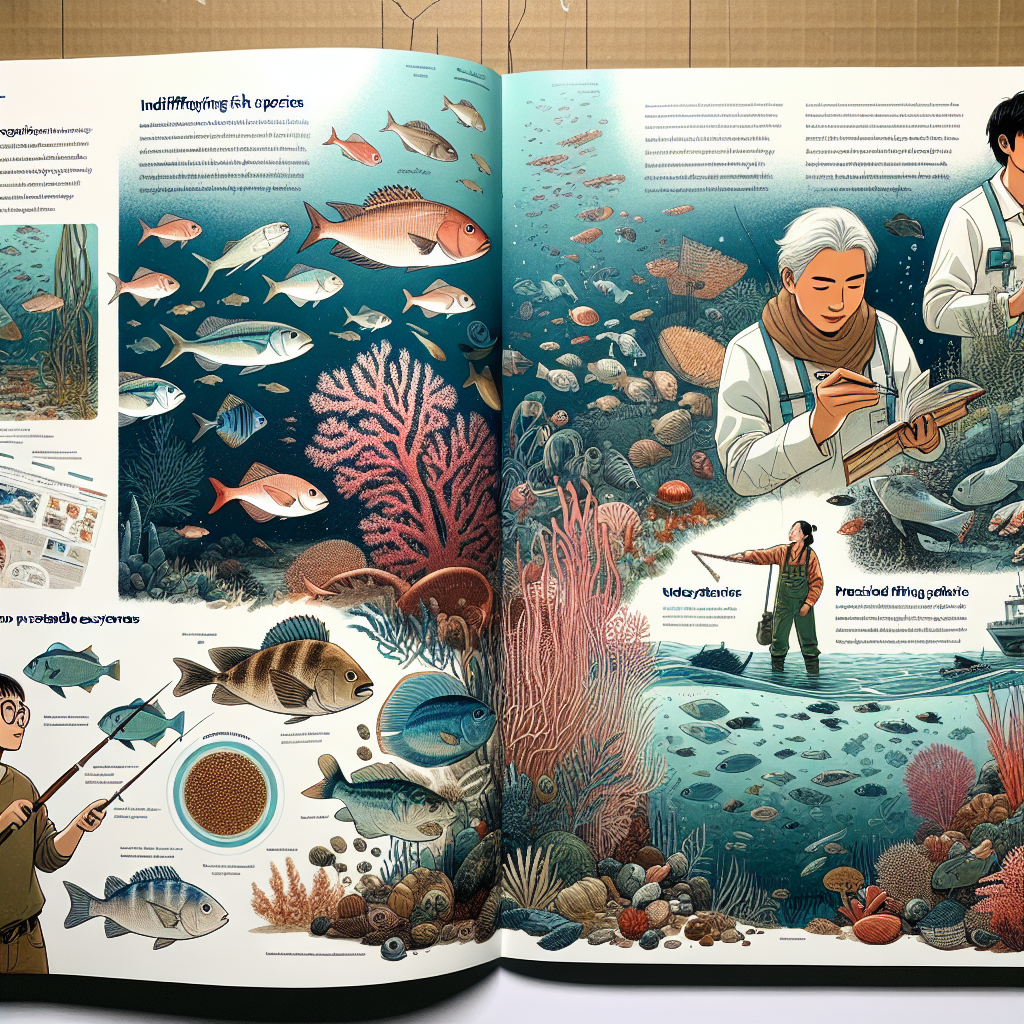In today’s ever-changing world, where the importance of sustainable practices cannot be overstated, it is crucial to understand the role of fishing skills in achieving food sustainability. From casting techniques to knowledge of fish species and their habitats, honing these skills becomes essential for preserving our oceans and ensuring a steady supply of nutritious food. In this article, we will explore the most vital fishing skills that contribute to food sustainability and empower individuals to make a positive impact on our planet. So, grab your rod and let’s dive into the fascinating world of sustainable fishing!
Fishing Skills for Catching Sustainable Fish
Knowledge of Sustainable Fishing Practices
Having knowledge of sustainable fishing practices is crucial for ensuring the long-term viability of fish populations. Sustainable fishing practices involve methods that minimize harm to the marine ecosystem and prioritize the conservation of fish stocks. By understanding and implementing these practices, you can help maintain healthy fish populations and contribute to food sustainability.
Understanding of Local Fishing Regulations
To ensure sustainable fishing, it is important to have a thorough understanding of local fishing regulations. These regulations vary from one location to another, and they aim to protect vulnerable fish species and their habitats. By familiarizing yourself with these regulations, you can make informed decisions about the size and quantity of fish you catch, as well as the fishing seasons and protected areas.
Ability to Identify and Target Sustainable Species
Being able to identify sustainable species is key to responsible fishing. Some fish populations are more resilient and can handle higher fishing pressure, while others are more vulnerable and require stricter conservation measures. By targeting sustainable species, you can help maintain a balanced ecosystem and promote food sustainability.
Fishing Techniques for Low-Impact Fishing
Selective Fishing Methods
Using selective fishing methods is crucial for minimizing bycatch and reducing the impact on non-targeted species. Selective fishing gear, such as fish size-specific nets or hooks, can help ensure that only the targeted species are caught while allowing non-targeted species to be released unharmed. By adopting these techniques, you can contribute to the preservation of fish biodiversity and ecosystem health.
Proper Handling and Release of Non-Targeted Species
When non-targeted species are inadvertently caught, it is essential to handle and release them properly to increase their chances of survival. This includes minimizing the time they spend out of the water, removing hooks carefully, and ensuring they are returned to their natural habitat unharmed. By practicing proper handling techniques, you can minimize the negative impact on non-targeted species and promote sustainable fishing.
Use of Non-Destructive Gear
Using non-destructive gear is another important aspect of low-impact fishing. Avoiding gear that can damage the seafloor or other marine habitats helps protect fragile ecosystems and the organisms that rely on them. Opting for gear that is designed to minimize its impact, such as traps or fish pots, can significantly reduce habitat destruction and contribute to sustainable fishing practices.

Efficient Fishing Skills for Maximizing Yields
Effective Use of Fishing Gear
Mastering the effective use of fishing gear is crucial for maximizing yields while minimizing waste. Understanding how to properly set up and maintain fishing gear, such as nets or traps, can significantly improve catch rates and reduce the likelihood of gear loss or damage. By honing your fishing skills and continuously improving your gear usage, you can optimize your catches and promote efficient fishing practices.
Knowledge of Fish Behavior and Habitat
Having a deep understanding of fish behavior and habitat is invaluable for successful fishing. By knowing where and how fish move, feed, and spawn, you can strategically position yourself and your gear to increase the likelihood of a productive catch. Observing environmental cues, such as water temperature and currents, can also help inform your fishing strategies and enhance your fishing skills.
Ability to Interpret Environmental Conditions
The ability to interpret environmental conditions is crucial for efficient fishing. Factors such as water temperature, salinity, and nutrient levels can greatly impact fish behavior and distribution. By staying informed about these conditions and using them to your advantage, you can adapt your fishing techniques accordingly. This not only improves your chances of success but also minimizes the impact on fish populations.
Skills for Assessing Fish Populations
Fish Stock Assessment Techniques
Having knowledge of fish stock assessment techniques is vital for understanding the health and abundance of fish populations. Techniques such as tagging and mark-recapture studies, as well as scientific surveys, can provide valuable data on fish population size, age structure, and reproductive capacity. By applying these techniques, you can contribute to the accurate assessment of fish populations and inform sustainable fisheries management decisions.
Monitoring and Data Collection Skills
Developing effective monitoring and data collection skills is essential for assessing fish populations over time. Regular monitoring allows for the detection of population trends and changes, providing crucial information for sustainable management. By honing your data collection skills and adopting standardized protocols, you can contribute to the collection of accurate and reliable data, which is crucial for informed decision-making.
Understanding of Ecosystem Dynamics
An understanding of ecosystem dynamics is essential for assessing fish populations in their broader ecological context. Fish populations are interconnected with the larger ecosystem, and changes in environmental factors can have significant impacts on their abundance and distribution. By understanding these dynamics, you can better interpret trends in fish populations and contribute to comprehensive ecosystem-based management strategies.

Fishing Skills for Responsible Consumption
Fish Cleaning and Filleting Techniques
Having proper fish cleaning and filleting techniques is important for minimizing waste and maximizing the utilization of harvested fish. By efficiently removing the fillets and separating other usable parts, you can reduce the amount of discarded fish. Additionally, proper cleaning techniques can also help ensure food safety and prevent bacterial contamination.
Safe Handling and Preservation of Fish
Proper handling and preservation of fish are crucial for maintaining the quality and safety of harvested fish. This includes techniques such as gutting, icing, and storing fish at the correct temperature. By following these practices, you can increase the shelf life of the fish and reduce the likelihood of spoilage. Proper handling and preservation also play a key role in preventing the spread of foodborne illnesses.
Knowledge of Sustainable Seafood Choices
Having knowledge of sustainable seafood choices is essential for responsible consumption. Understanding which fish species are overfished or at risk and choosing alternatives that are abundant and responsibly harvested can make a significant difference in promoting the sustainability of the seafood industry. By making informed choices, you can support sustainable fishing practices and contribute to safeguarding fish populations for future generations.
Survival Skills for Fishing
Boat Handling and Navigation
Having proficient boat handling and navigation skills is crucial for safety and success in fishing. Knowing how to operate and maneuver a boat safely, as well as understanding navigational skills such as chart reading and using GPS systems, helps minimize the risk of accidents and ensures that you can reach fishing grounds efficiently. Investing in boating safety courses and acquiring relevant certifications is highly recommended.
Swimming and Water Safety Skills
Swimming and water safety skills are essential for any fishing excursion, be it on a boat or while shore fishing. Knowing how to swim and understanding basic water safety measures can greatly reduce the risk of drowning or other water-related accidents. Being equipped with personal flotation devices and knowing the appropriate safety procedures in case of emergencies is crucial for your safety and the safety of others.
First Aid and Emergency Response Abilities
Having first aid and emergency response abilities is paramount in ensuring the safety and well-being of yourself and others during fishing expeditions. Accidents, injuries, or medical emergencies can happen anytime, and being prepared with first aid knowledge and emergency response skills can potentially save lives. Undertaking first aid training courses and having a well-stocked first aid kit on board are essential safety measures.
Skills for Community Engagement and Advocacy
Education and Awareness of Sustainable Fishing Practices
Promoting education and awareness of sustainable fishing practices within your community is a vital step towards ensuring a sustainable future for fishing. By sharing your knowledge of sustainable fishing techniques and educating others about the importance of responsible fishing, you can inspire positive change and encourage the adoption of sustainable practices among fellow anglers.
Ability to Communicate and Collaborate with Stakeholders
The ability to effectively communicate and collaborate with stakeholders is crucial for influencing change and promoting sustainable fishing practices at a larger scale. Engaging with local fishing communities, conservation organizations, and government agencies fosters collaboration and allows for the exchange of ideas and perspectives. By actively participating in these discussions, you can contribute to decision-making processes and advocate for the implementation of sustainable fishing policies.
Advocacy for Policy Change and Conservation Efforts
Advocating for policy change and supporting conservation efforts is key to achieving long-term fishery sustainability. By actively engaging in the policy-making process, promoting the adoption of sustainable fishing regulations, and supporting initiatives that protect vulnerable fish populations and habitats, you can help shape a more sustainable future for the fishing industry and ensure the availability of fish as a food resource for generations to come.
Skills for Responsible Seafood Industry Management
Understanding of Supply Chain and Market Dynamics
Having an understanding of supply chain and market dynamics is crucial for responsible seafood industry management. It allows you to trace the origins of seafood products, assess their sustainability credentials, and make informed purchasing decisions. Furthermore, understanding market dynamics helps identify opportunities to promote sustainable seafood and establish partnerships with suppliers and retailers that prioritize sustainability.
Knowledge of Seafood Certification Programs
Acquiring knowledge of seafood certification programs, such as the Marine Stewardship Council (MSC) or the Aquaculture Stewardship Council (ASC), is essential for responsible seafood industry management. These certification programs provide assurance that seafood products are sourced and produced sustainably, meeting specific environmental, social, and traceability criteria. By supporting certified seafood, you can contribute to the sustainable management of fisheries and aquaculture operations.
Skills in Sustainable Seafood Business Development
Developing skills in sustainable seafood business development is crucial for effectively managing seafood enterprises in a responsible manner. This includes understanding consumer preferences and market trends, developing sustainable sourcing strategies, and implementing transparent supply chain practices. By incorporating sustainability principles into business operations, you can contribute to the growth of a responsible seafood industry.
Fishing Skills for Climate Change Adaptation
Understanding the Impact of Climate Change on Fish Stocks
Developing an understanding of how climate change affects fish stocks is vital for adapting fishing practices to changing conditions. Climate change can alter ocean temperatures, currents, and habitats, impacting the distribution and abundance of fish species. By staying informed about these changes and monitoring their effects on fish populations, you can adjust your fishing strategies and contribute to climate-resilient fishing practices.
Ability to Adapt to Changing Environmental Conditions
The ability to adapt to changing environmental conditions is crucial for fishing success in the face of climate change. As fish habitats and behaviors are influenced by shifts in temperature, nutrient availability, and other environmental factors, being able to adjust your fishing techniques and target different species can help maintain fishing yields. Developing a flexible approach to fishing and continuously learning from environmental feedback is key.
Knowledge of Climate-Resilient Fishing Techniques
Developing knowledge of climate-resilient fishing techniques is essential for ensuring the sustainability of fishing practices in a changing climate. These techniques may include adjusting gear types, utilizing new fishing grounds, or adopting alternative fishing methods. By staying up to date with emerging best practices and innovative approaches, you can adapt to climate change challenges and contribute to the long-term viability of fishing.
Skills for Effective Fisheries Management
Understanding of Fishery Science and Resource Management
Developing an understanding of fishery science and resource management is pivotal for effective fisheries management. This includes knowledge of fish population dynamics, stock assessment methods, and the principles of sustainable resource utilization. By applying these scientific principles, you can contribute to evidence-based fisheries management strategies that aim to preserve fish stocks and maintain ecosystem health.
Ability to Collaborate with Fisheries Professionals
The ability to collaborate with fisheries professionals, including scientists, managers, and policymakers, is essential for effective fisheries management. By participating in research collaborations, engaging in stakeholder consultations, and sharing your knowledge and experience, you can contribute to decision-making processes and help develop sustainable fishing policies and practices.
Skills in Designing and Implementing Fishery Regulations
Developing skills in designing and implementing fishery regulations is key to effective fisheries management. This involves understanding the social, economic, and ecological implications of different regulatory approaches and finding the right balance between conservation and socioeconomic considerations. By actively participating in the regulatory process and contributing to the development of well-designed regulations, you can foster sustainable fisheries management and promote food sustainability.
